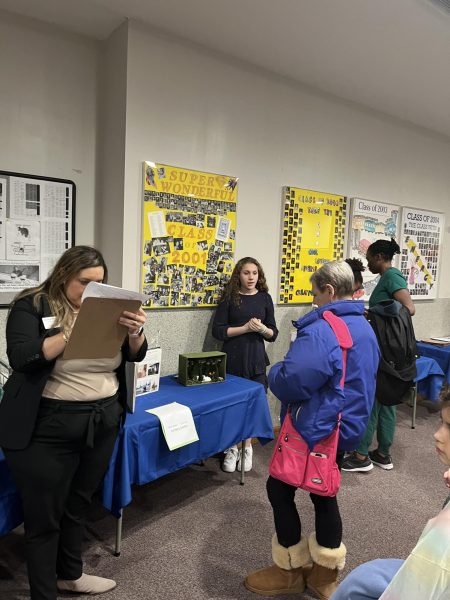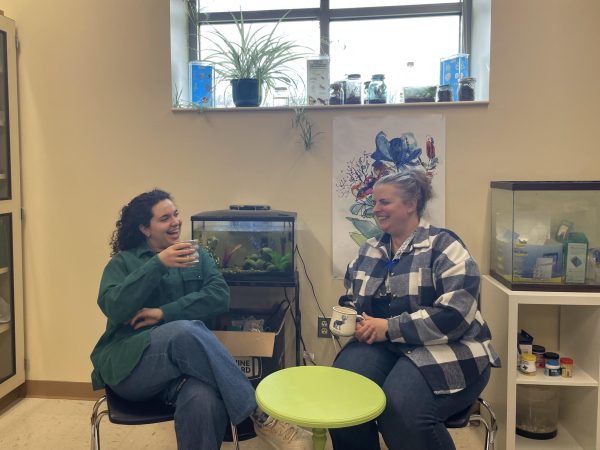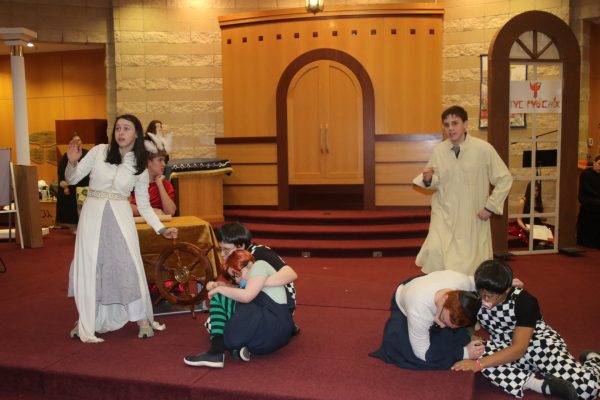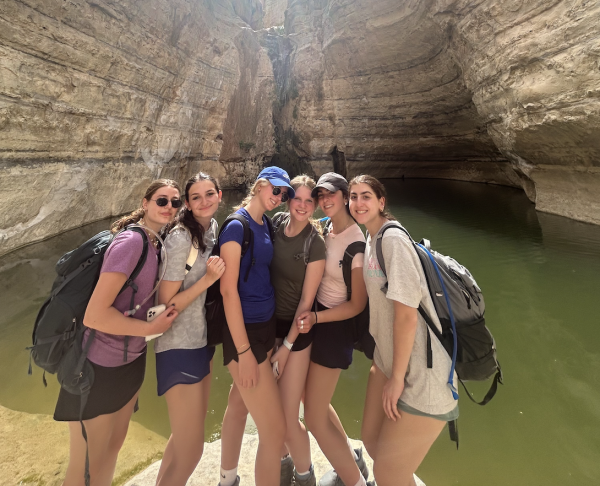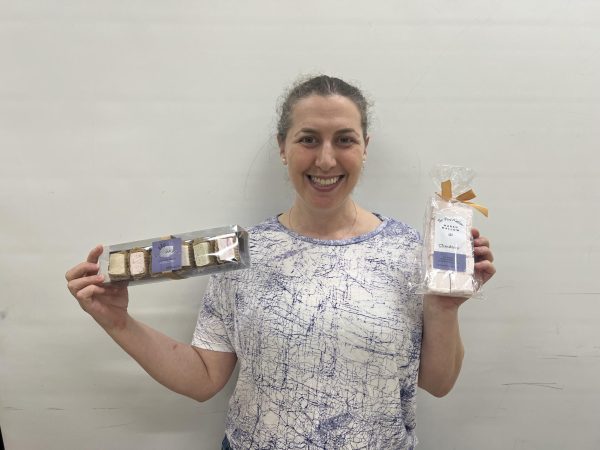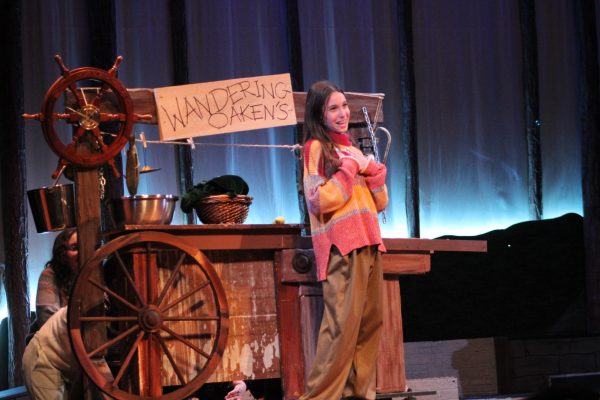An immersion into politics: Eighth-grader as guest columnist for The Huffington Post
Matthew Wieseltier in his Huffington Post video, “Donald Trump op-ed by 13-year-old 8th grade student Matthew Wieseltier,” which garnered 13,000 likes and 8,221 shares on Facebook.
June 17, 2016
For eighth-grader Matthew Wieseltier, the summer of 2015 began with a lecture by the editor-in-chief and co-founder of The Huffington Post, Arianna Huffington. Matthew attended the talk about adult use of technology at the Aspen Idea Festival in Aspen, CO. After seeing how interested Matthew was in the topic, Huffington asked him to write an article for The Huffington Post focusing on internet use by adults and their kids.
“I just sat down and started writing and then it got published a few days later,” Matthew said.
In only one hour and 30 minutes, Matthew wrote his first article titled, “Children, Parents and Technology.” From that point on, Matthew was no longer an everyday eighth-grader, but rather a well-known columnist for The Huffington Post. His first article got over one million hits.
“I was really happy that I made a difference,” Matthew said.
Matthew’s interest in politics began from a young age, but his love for the subject really started to sprout after he came home from camp in August. His father told him about Joseph McCarthy, a politician and U.S. senator in the late ’40s and early ’50s who led a communist witch hunt throughout the country. The quote “Have you no sense of decency, sir?” said by Joseph Nye Welch at McCarthy’s hearing, inspired Matthew to write an article about presidential candidate Donald Trump.
It was not long until Matthew began to write his second article for The Huffington Post titled, “Why I Do Not Want to Grow Up In Donald Trump’s America.” Since then he cannot get enough of politics; he reads newspapers and magazines whenever he gets the chance and follows the news about foreign and domestic affairs.
Soon after his article on Trump was published, it went viral. This led to the creation of a video posted by The Huffington Post that explained his negative views of the candidate. At first, Matthew was intimidated by the idea of being filmed. He worried about the sound of his voice and the camera he had to look into was nerve-racking.
“In blogging you can just sit down and write it and nobody really hears you talk or sees your face,” Matthew said.
Matthew’s father, Leon Wieseltier, was anxious for the Trump video to be posted, but for a different reason. Leon’s anxiety came from keeping his son sheltered from negative comments. He explained how words can be very hurtful, especially from people of opposing views.
“Some of them [comments] were terribly nasty,” Leon said. “The internet is partly a sewer.”
Although Leon warned him against it, the temptation was too much for Matthew and he decided to look at the comment section. Despite the fact that there were some comments opposing his opinions, there were others that agreed with him.
“Criticism is kind of like a badge of honor,” Matthew said. “If you have made an impact enough to get people to criticise you … I think that is pretty good.”
In the end, Leon was very proud of his son with the way he handled the unpleasant comments. He explained how strong his son’s self esteem was, and how he recognized and respected those who did not agree with him and his opinions.
“Matthew was not crushed by [the comments] or shaken by them,” Leon said. “The more extreme and ugly they were, the more he tended just to laugh at them.”
Matthew’s goal was to get involved with politics, and he feels that he has accomplished it. Matthew believes it is important that teenagers are acknowledged in politics. Even if they do not pay attention to specifics, he still thinks adolescents are able to understand when something or someone is not fit for office. In this case, he is referring to Trump.
“The teenage voice is really unique,” Matthew said. “There aren’t a lot of kids like me who are writing about [politics].”
Matthew’s Government and Economics teacher Heidi Zansler agrees with Matthew that teenage involvement in politics is important. In Zansler’s opinion, some adults have forgotten how society has developed over time, and it is up to the adolescents to learn about the foundation of the government to benefit themselves and their community in the long run.
“The student is the beginning of moving forward,” Zansler said.
In the beginning of the year, Zansler assigned a project to her class that focused on following candidates throughout the primaries. Students were assigned candidates and had to write articles about them and their beliefs. As the primaries continued, students got to see who lost and how their own candidate’s opinions changed. The project is still going on even though it has been eight months since it began.
“Everyone in the class was very involved and very informed … of the primary process as it whittled down to three people,” Zansler said.
Zansler explained how passionate Matthew is about the project. She commended Matthew on his ability to share his ideas about what he believes in ways that help and support the class discussions.
Matthew encourages his peers to get involved in politics. He says talking about the topic with others and educating oneself is key to being successful.
“A lot of people sometimes think, ‘Oh kids they don’t know enough about politics, they are just ignorant,’” Matthew said. “I think not; kids are smart enough to pay attention.”
To watch Matthew’s video for the Huffington Post, click here and to read his article about Donald Trump, click here.











